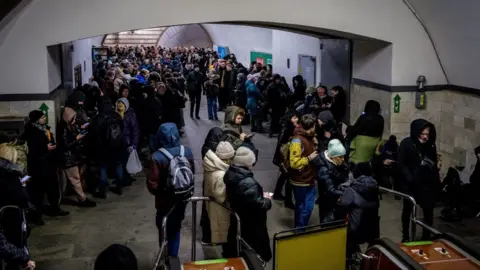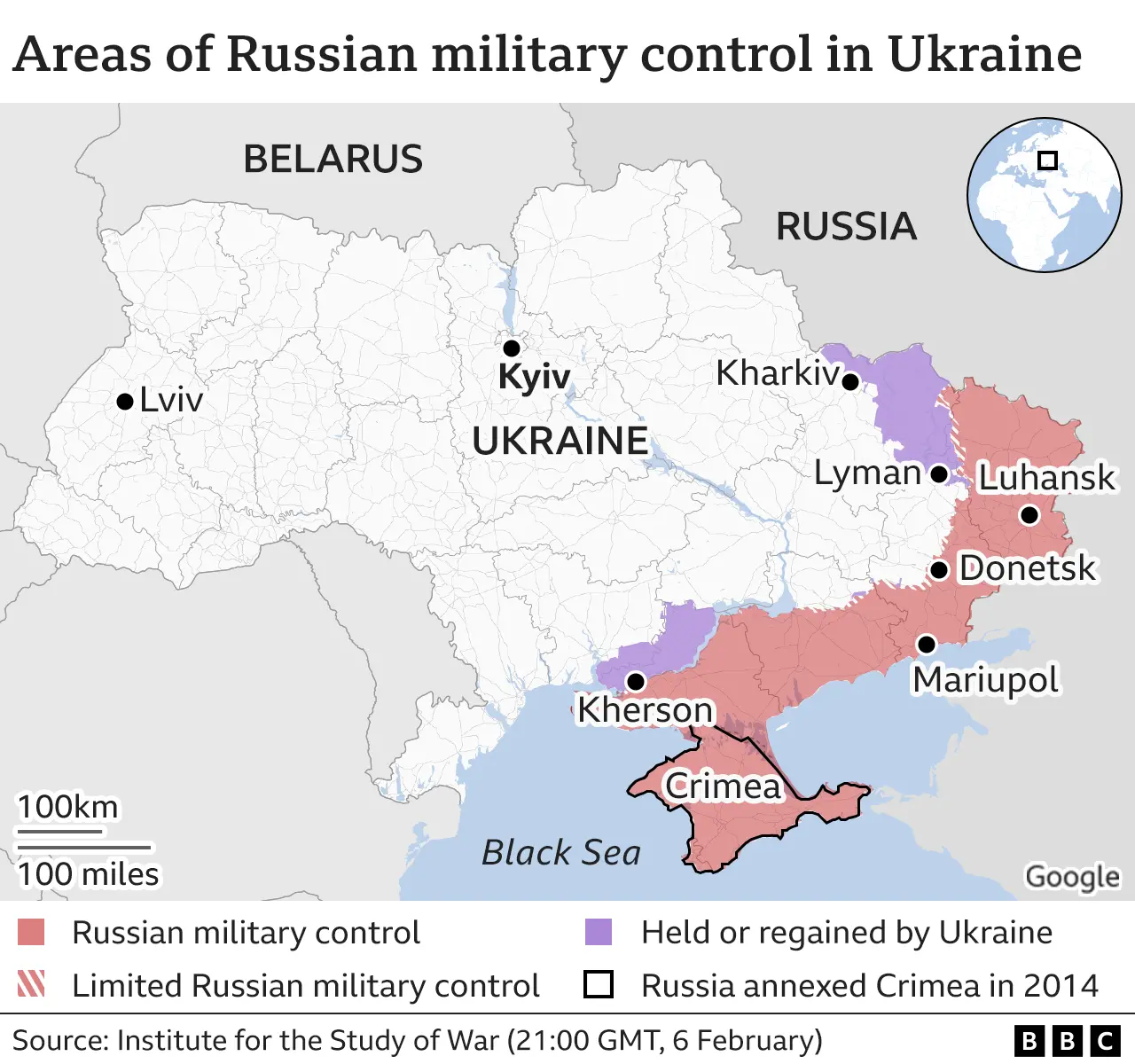Ukraine war: Russia again fires missiles over Moldova in latest strikes
 Getty Images
Getty ImagesRussia's latest aerial attack on Ukraine saw missiles cross Moldovan airspace, Ukrainian and Moldovan officials have said.
Kyiv's top general said missiles also flew above Romania - a claim denied by Romania, but later repeated by Ukrainian President Volodymyr Zelensky.
Mr Zelensky said the missiles represented a "challenge" to Nato, of which Romania is a member country.
A Russian government spokesperson deflected questions about the incident.
During a regular call with journalists, Dmitry Peskov told the BBC it was a matter for the defence ministry, which is yet to comment.
Moldova's country's defence ministry described the missile flyover as a "violation", and summoned the Russian ambassador for an explanation - having done the same following a similar incident in October.
The incident occurred on a day of political turbulence in Chisinau, during which the whole government resigned.
For its part, Romania insisted that Russian missiles had not strayed into its airspace "at any time".
But Mr Zelensky doubled down on the Ukrainian military's Romanian claim, writing that the Russian missiles posed questions for "collective security".
In a post on the Telegram messaging app, he added there were "victims" of the assault, without specifying a number.
The Ukrainian air force said 71 missiles were fired in Friday's "massive" attack, of which it shot down 61.
In the aftermath, an aide of Mr Zelensky reiterated a call for the West to donate fighter jets, and criticised "political hesitation" over the provision of new arms to his country.
Mr Zelensky himself had spent the previous day meeting EU leaders and appealing for planes to be sent - following another visit to the UK for the same purpose.
Ukraine is suffering blackouts after energy facilities were targeted in six regions.
Some 150,000 homes were without electricity in the eastern Kharkiv region alone, and seven people were injured, officials said.
Explosions were also heard in Kyiv, although the city's mayor said nobody was hurt. Residents sheltered in the capital's metro system, and school lessons were reportedly held in one station.
Other regions, including Kharkiv and Zaporizhzhia, also came under fire, and the governor of Mykolaiv region described at least three "waves" of missiles.
Moscow has repeatedly targeted Ukraine's energy facilities over the winter, and Ukraine's state energy firm described Friday's assault as the fourteenth of its kind.
Such attacks have been described by some analysts as war crimes, although Russia denies intentionally harming civilians.
Energy workers in the country have increasingly dangerous jobs - and 98 of them lost their lives while performing their duties last year, an official recently told Latvian media.
On Friday, the boss of Ukraine's state-owned rail network tweeted a defiant message as the aerial attacks began.
Olexander Kamyshin wrote: "Trains will start delaying, but none will be cancelled. Promise. We are determined."

